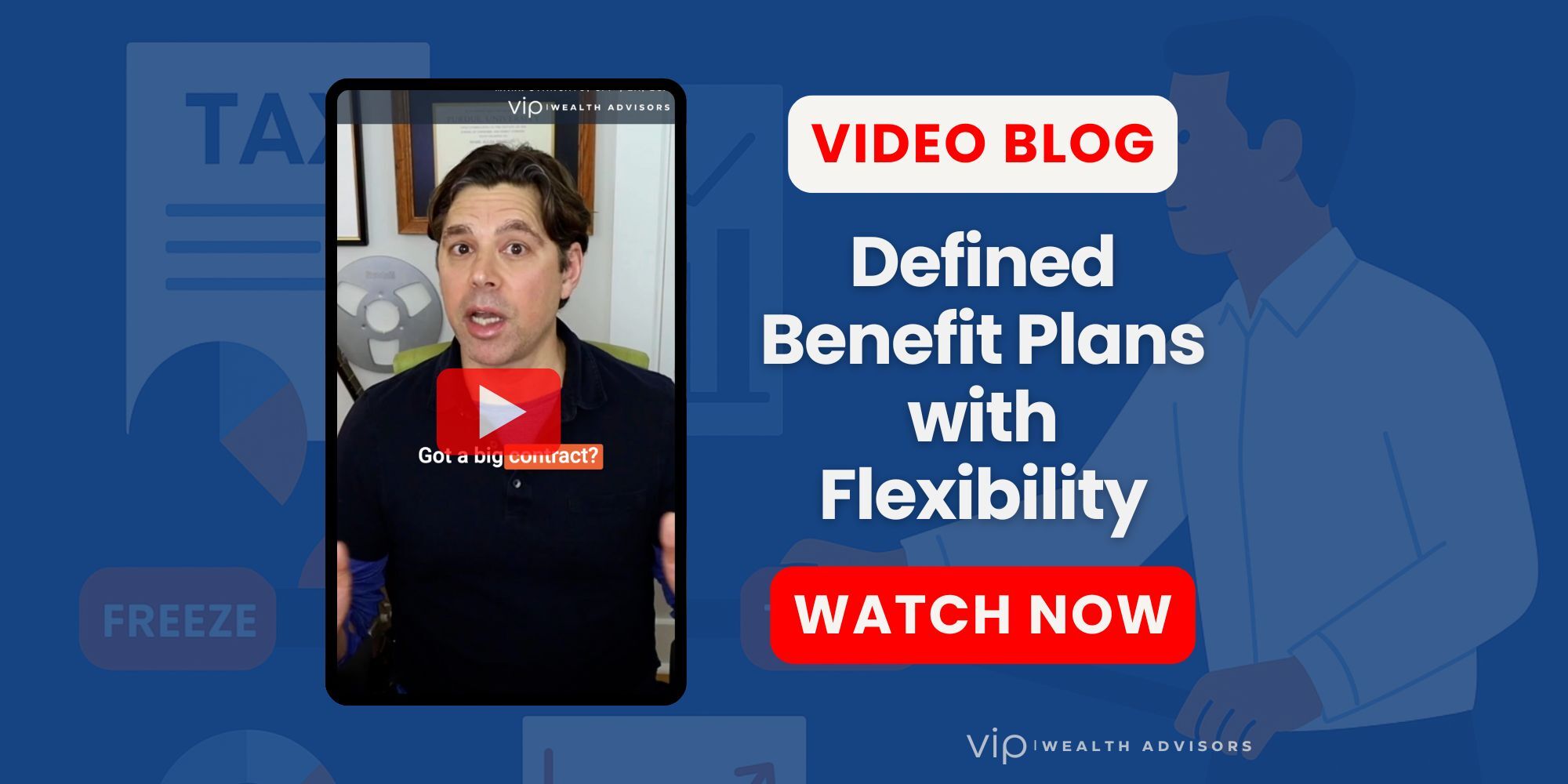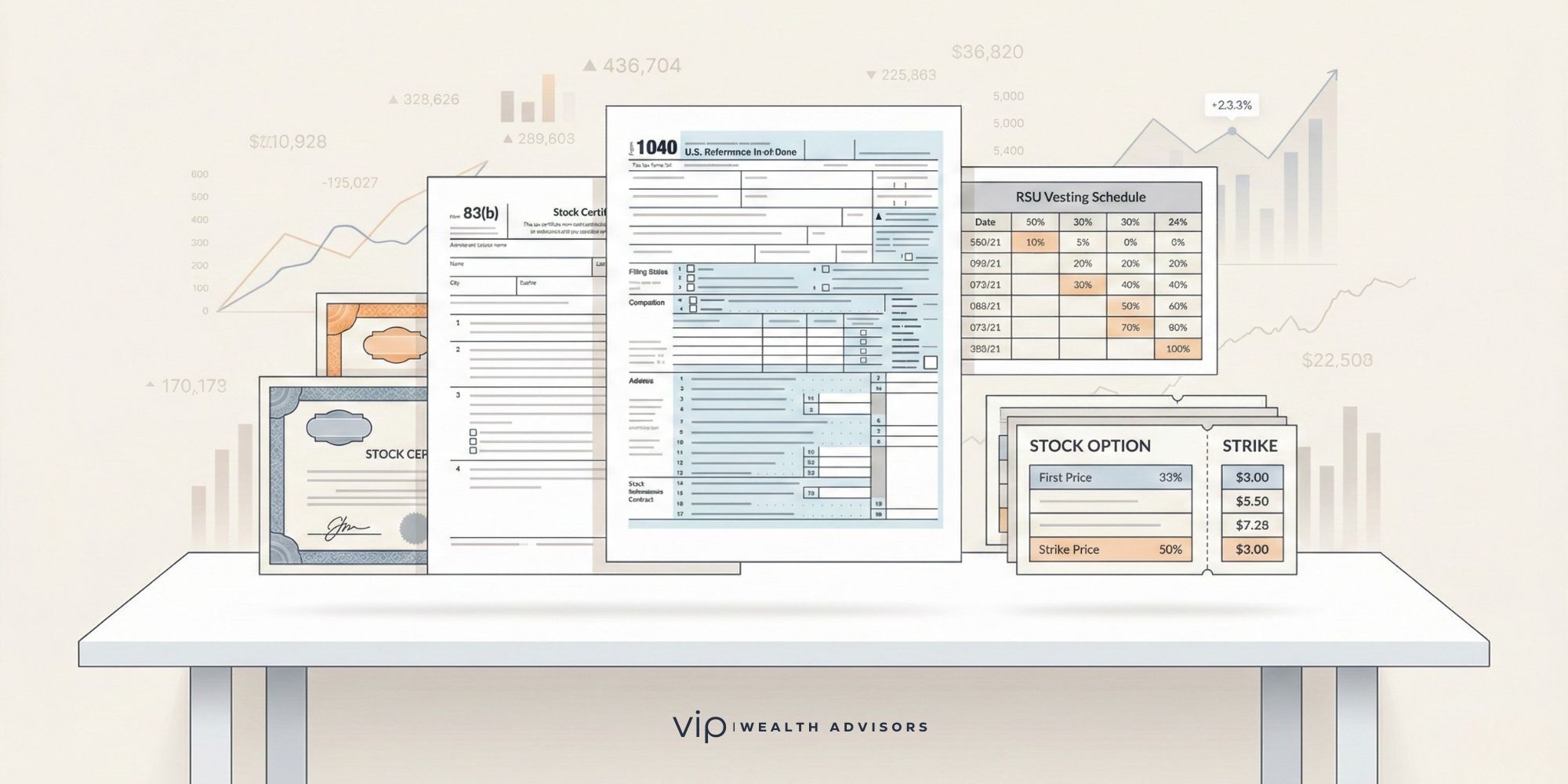Most high-income business owners are looking for ways to reduce taxable income, fast. One of the most powerful levers? A Defined Benefit (DB) or Cash Balance Plan, especially when paired with a 401(k).
But here’s the catch: business income isn’t always consistent. And many owners fear getting "stuck" with large, inflexible funding requirements.
Enter: the Freeze/Thaw Strategy.
It gives you aggressive front-loaded deductions, total control over future contributions, and the ability to redirect cash elsewhere — all without blowing up your plan or triggering IRS penalties.
⚙️ Quick Refresher: How a Cash Balance Plan Works
- Employer credits a flat dollar amount or percentage of compensation annually
- Plan assets grow with a fixed or variable “interest crediting rate”
- Contributions are tax-deductible to the business
- Funded only by the employer, not employees
- Contributions are mandatory once the plan is active
For 2025, annual contributions can exceed $300,000, depending on age, compensation, and actuarial design. The older the business owner, the larger the allowable deduction.
🛑 The Problem: Contributions Become a Golden Handcuff
- You must fund at least the actuarial minimum, even if your revenue dips.
- You can’t "skip" contributions without amending or freezing the plan.
- Terminating the plan can be complicated and may require lump sum distributions or rollovers.
This becomes a real issue for owners with:
- Cyclical income (consulting, construction, seasonal businesses)
- Cash flow priorities (debt repayment, business reinvestment, real estate)
- Exit or succession timelines within 3–5 years
🧊 The Freeze/Thaw Solution
The IRS allows plan sponsors to freeze a defined benefit or cash balance plan at any time—if the proper steps are followed.
A freeze means:
- No future benefit accruals
- No large required contributions
- Plan assets continue to grow tax-deferred
- Plan remains active and in compliance
- Employees (if any) must receive notice
You can later “thaw” the plan by amending it and resuming contributions.
📊 Real-World Example: The Consultant with Big Years
Client: 52-year-old S Corp consultant
Income Pattern: $800K in peak years, $300K–$400K in others
Years 1–3: Peak Income
Establishes Solo 401(k) + Cash Balance Plan
Annual Contributions:
→ $265K (CB Plan)
→ $31K (401(k))
→ Total = $296K tax deduction
AGI drops by nearly $300K per year
Nearly $1M accumulated in retirement assets in 3 years
Years 4–5: Revenue Downshifts
Freezes CB Plan (in writing, with TPA and actuary)
Required contributions drop to administrative costs only
Redirects cash flow into:
→Real estate with accelerated depreciation
→Charitable DAF contribution for additional write-offs
Year 6: Income Spikes Again
Thaws CB Plan
Actuary recalculates funding based on new compensation and plan balance
Resumes high six-figure contributions at IRS-compliant levels
💸 How the Taxes Work
Here’s where the Freeze/Thaw strategy shines from a tax perspective.
Contributions Are Fully Deductible
- Cash Balance Plan contributions are above-the-line deductions on the business return (Schedule C, 1120S, or 1065)
- They reduce taxable income dollar-for-dollar
- For S Corps or partnerships, the deduction flows through to your personal return
Carryover Flexibility
If your business can’t contribute the full amount in a low-income year, you can freeze the plan and wait. You aren’t required to “make up” missed contributions later.
No Immediate Tax to You
Unlike bonuses or profit distributions, contributions to a DB plan are not taxable to the owner personally — they simply grow in the plan, tax-deferred.
Income Smoothing
By contributing large sums in high-income years and freezing in lean years, you can intentionally flatten your taxable income across time, stay out of top tax brackets, and avoid phaseouts.
No Limits Like a SEP or 401(k)
While 401(k)s and SEPs have strict dollar limits, DB and CB Plans are actuarially determined. For older owners, the allowable contributions can be 5–10x higher.
🚨 But Watch for Overfunding
- If the plan is overfunded when you freeze, thawing later may be limited
- Excess funds could be stuck or trigger excise taxes on distribution without proper planning
- Work with your actuary to consider in-plan Roth conversions or a strategic plan termination
🔁 When to Use Freeze/Thaw
This strategy is perfect for:
- Doctors joining/leaving a group
- Consultants or fractional execs with variable contracts
- Real estate developers or construction firms
- Business owners prepping for a liquidity event
- Firms with succession/retirement transitions underway
💡 Why It’s So Creative (and Underused)
Huge tax savings now when income is high
Flexibility to pause and resume without IRS penalties
Cash flow redirection to other tax strategies:
✅ Oil & Gas IDCs (60–80% year-one deduction)
✅ Real Estate with Cost Segregation
✅ Charitable DAFs
✅ Roth Conversions in down years
Total control over plan lifecycle
Compounds tax-deferred growth even when frozen
🛡️ Pro Tips for Success
- Model 5+ years of income and contributions with your actuary
- Document the freeze in writing, with the correct plan amendment date
- Notify employees (if applicable) under ERISA rules
- Monitor funding levels annually
- Work with a team that understands DB plans in the context of holistic tax strategy—not just retirement
🧠 Bottom Line
For high-income business owners, the Cash Balance Freeze/Thaw Strategy transforms a rigid retirement structure into a precision tax deferral machine.
Use it to shrink your AGI, avoid top brackets, and build long-term wealth—without locking yourself into contributions you can’t sustain.
If you earn between $500K and $2M+ annually and want the flexibility to adjust your plan based on income cycles, this strategy could save you six figures in taxes while building a multi-million dollar retirement foundation.
📩 Ready to Run the Numbers?
At VIP Wealth Advisors, we work directly with actuaries and TPAs to design, manage, freeze, and thaw cash balance plans with surgical precision—aligned with your income cycles, business strategy, and tax goals.
If you're earning big in certain years, don't waste the opportunity. Let’s build a contribution strategy that works for real life—flexible, powerful, and fully IRS-compliant.
📅 Book Your VIP Planning Call
View More Articles by Topic
- Taxes (81)
- Financial Planning (46)
- Equity Compensation (38)
- Investments (30)
- RSU (23)
- Tax Policy & Legislation (19)
- Business Owner Planning (17)
- Incentive Stock Options (16)
- Retirement (16)
- Psychology of Money (15)
- Alternative Investments (13)
- AMT (9)
- Pre-IPO Planning (9)
- Real Estate (9)
- Estate Planning (8)
- Fiduciary Standard (8)
- Crypto (6)
- NSOs (6)
- The Boring Investment Strategy (6)
- Capital Gains Tax (5)
- Private Investments (5)
- QSBS (5)
- Market Insights (4)
- Post-IPO Tax Strategy (4)
- 401(k) Strategy (3)
- Market Timing (3)
- Q&A (3)
- Stock Market (3)
- Venture Capital (3)
- Altruist (2)
- Charitable Giving (2)
- ETF Taxes (2)
- IRA Strategy (2)
- International Financial Strategies (2)
- Irrevocable Trust (2)
- Legacy Wealth (2)
- Video (2)
- AUM vs Flat Fee (1)
- Atlanta (1)
- Book Review (1)
- Carried Interest Planning (1)
- Depreciation & Deductions (1)
- Education Planning (1)
- Energy Markets (1)
- Precious Metals (1)
- QTIP Trust (1)
- Revocable Trust (1)
- Risk Management (1)
- Schwab (1)
- Solo 401k (1)








